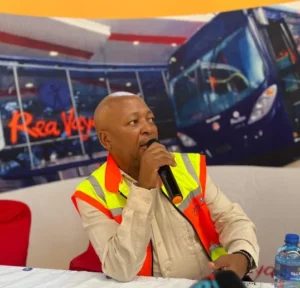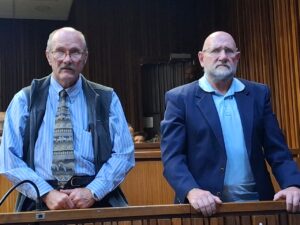By: Sipho Singiswa
The public political spat between two ANC presidential candidates, Minister of Tourism, Lindiwe Sisulu and current president, Cyril Ramaphosa, signifies two different schools of political ideology, ethics and commitment.
These ideological differences between Ramaphosa and Sisulu were underscored when she stood up in early January this year and publicly critiqued the constitution as one that enables the exploitation of legal loopholes in favour of the very wealthy at the expense of the marginalized majority – as well as renders the government and judiciary subordinate to market-dictates.
She became subject to a vindictive political backlash and social vilification as a result.
In her article: Hi Mzansi, have we seen Justice? Sisulu criticized the shortcomings of the constitution just as many activists, progressive academics, law makers and writers have over the years, myself included. To us it is clear that the constitution and its judiciary arm, after twenty-eight (28) years of the ‘so-called’ South African Constitutional Democracy and due to its current neo-colonial, liberal nature, has dismally failed to make the necessary corrective interventions. Rather it has allowed serious legal limitations that the racist White corporate giants exploited to maliciously tarnish the ANC-led government’s political image by hindering the implementation of its social transformation agenda to address the persistent racial inequalities in South Africa as outlined in the resolutions ANC’s 54th National Conference in 2017.
The orchestrated social vilification of Sisulu points to her being perceived as a real threat to the Ramaphosa camp. Firstly, it echoes the bitter battle for the hearts and minds of the ANC’s rank and file membership and makes it abundantly clear that her utterances resonate with those who are disillusioned with the status quo. Further it reveals that many in the ANC have pinned their hopes on her in the battle for the implementation of the said 54th National Conference’s key resolutions to advance its stalled social transformation agenda.
It is well-known that Pan-Africanist ANC members accuse Ramaphosa’s Presidency of being funded to project-manage and protect White corporate interests in both the ANC and government. This sentiment is based on Ramaphosa’s political history, and pro corporate leadership and subsequent lack of enthusiasm to support and implement the said resolutions to execute the people’s wish for Restorative Justice and Land Restitution. They point out that the central reason for his failure to implement these resolutions is because Ramaphosa’s White corporate backers, especially in the extraction industry, are not happy with the pro poor Pan Africanist 54th Conference Resolutions. Just as it happened in response to the ANC’s historical doctrine, the Freedom Charter, they perceive the resolutions as a threat to White economic status and generated much white paranoia.
White fear is unfounded though under Ramaphosa’s presidency in which the ANC simply manufactures hope and a saleable transformation agenda without any tangible or demonstratable outcomes. As a result, the proponents of the ANC’s 54th Conference Resolutions (commonly known as the RET faction) have found themselves pitted against the Ramaphosa faction (commonly known as the Thuma Mina camp). They say that his leadership has succeeded in reducing social transformation concepts such as Restorative Justice, Radical Economic Transformation and Land Restitution to mere political sloganeering and electioneering. They add that none of the key resolutions are likely to be implemented under Ramaphosa’s presidency while agreements that favour White corporate bosses continue to be timeously implemented and signed off by the president.
Ramaphosa’s calculated lack of the implementation of these resolutions means that millions of Mzansi’s Native Africans continue to be landless, homeless, unemployed and economically subjugated to the White hegemonic oppressive narrative. It also signifies a steady disconnect from the sentiments of the majority under the stewardship of the overtly corporate-friendly Ramaphosa, as well as the continuation of the illegal capital outflows from the shores of this country, significant increases in food prices, and exponentially high levels of unemployment and poverty.
Whereas Ramaphosa is beholden to the conditions of the intrinsic historical association with his corporate funders and support of their neo-colonial liberal economic agenda, Minister Sisulu, has come to represent a real challenge to those backing Ramaphosa, with her pro-poor, pro-redistribution stance. For these white oligarchs and their shareholders this signals the imminent usurpation of their constitutionally facilitated right to continue looting the poor of their ancestral land, mineral resources, dignity and equality.
Given this backdrop Sisulu has come to symbolise a beacon of hope for real socioeconomic change and perhaps the beginning of a path to a sincere process of emancipation for the indigenous African people, especially women.
Unlike Ramaphosa, who has a mysteriously short but unprecedented meteoric rise in the ANC’s leadership history (which many in the ANC attribute to his ‘unhealthy’ association with the extraction industry bosses) Sisulu has a solid track record in both liberation politics and governance, as well as a family legacy that is embedded in the Pan-Africanist history and most critically, the ideological imperatives and deliverables of what the liberation struggle had promised to deliver to the land dispossessed and poverty-stricken people of this country. This is what sets Sisulu apart from Ramaphosa who, by contrast is a schooled novice in the ANC politics.
Sisulu is confronting patriarchal resistance in the Ramaphosa Presidency where it is assumed that the role of women in the leadership structures of ANC Tripartite Alliance is secondary to that of the ANC Boys Club. She is being forced to work three times harder than any man for the position of president. Hers is an obstacle course strewn with danger, threats, booby traps, fake news, reputational damage and slurs and insults dished out in the weaponised Thuma Mina aligned media.
Despite this she perseveres and is receiving a groundswell of ANC branch support from across the country. This is because the rank and file know that there is no better time to restore the heart of the ANC and save the people of this country from corporate decimation through placing a progressive woman president at the helm.
*Sipho Singiswa is a political commentator and filmmaker. He is co-founder of Media for Justice and Director of Media and International Programming of The Robben Island Ex-Political Prisoner International Human Rights Program.







